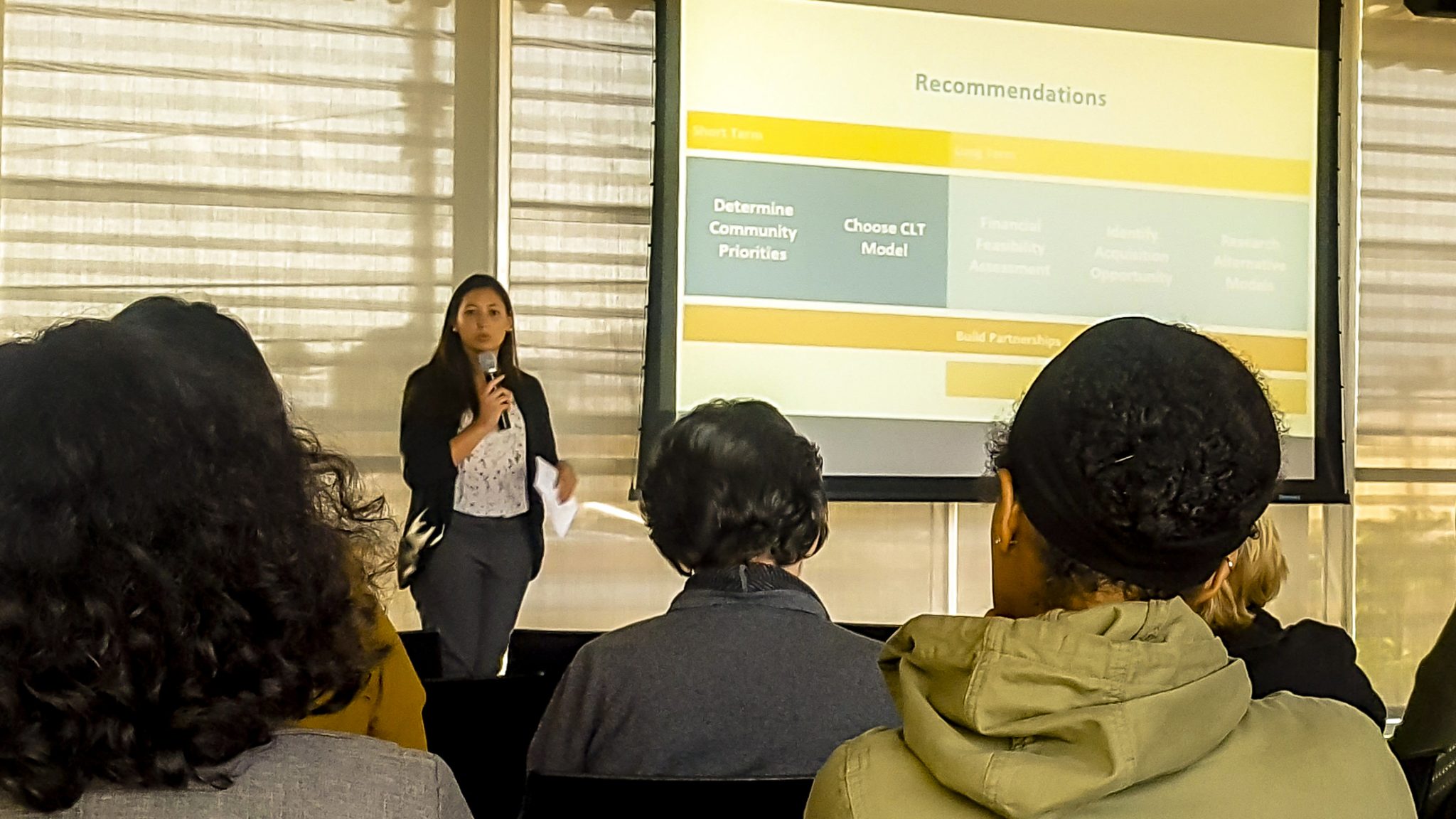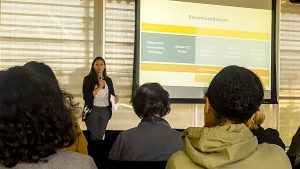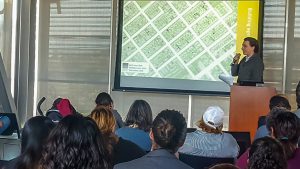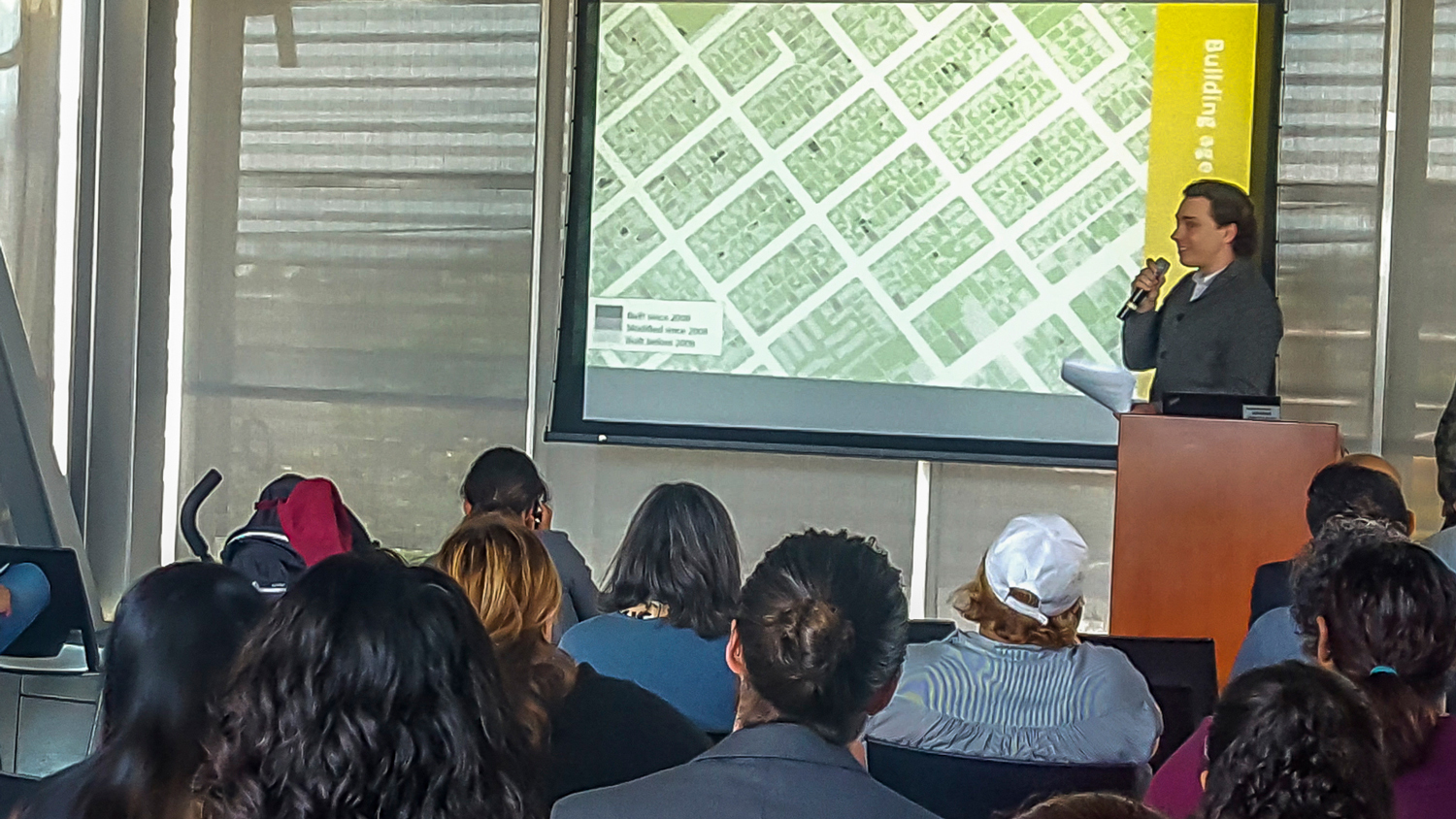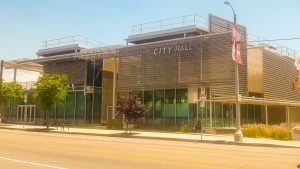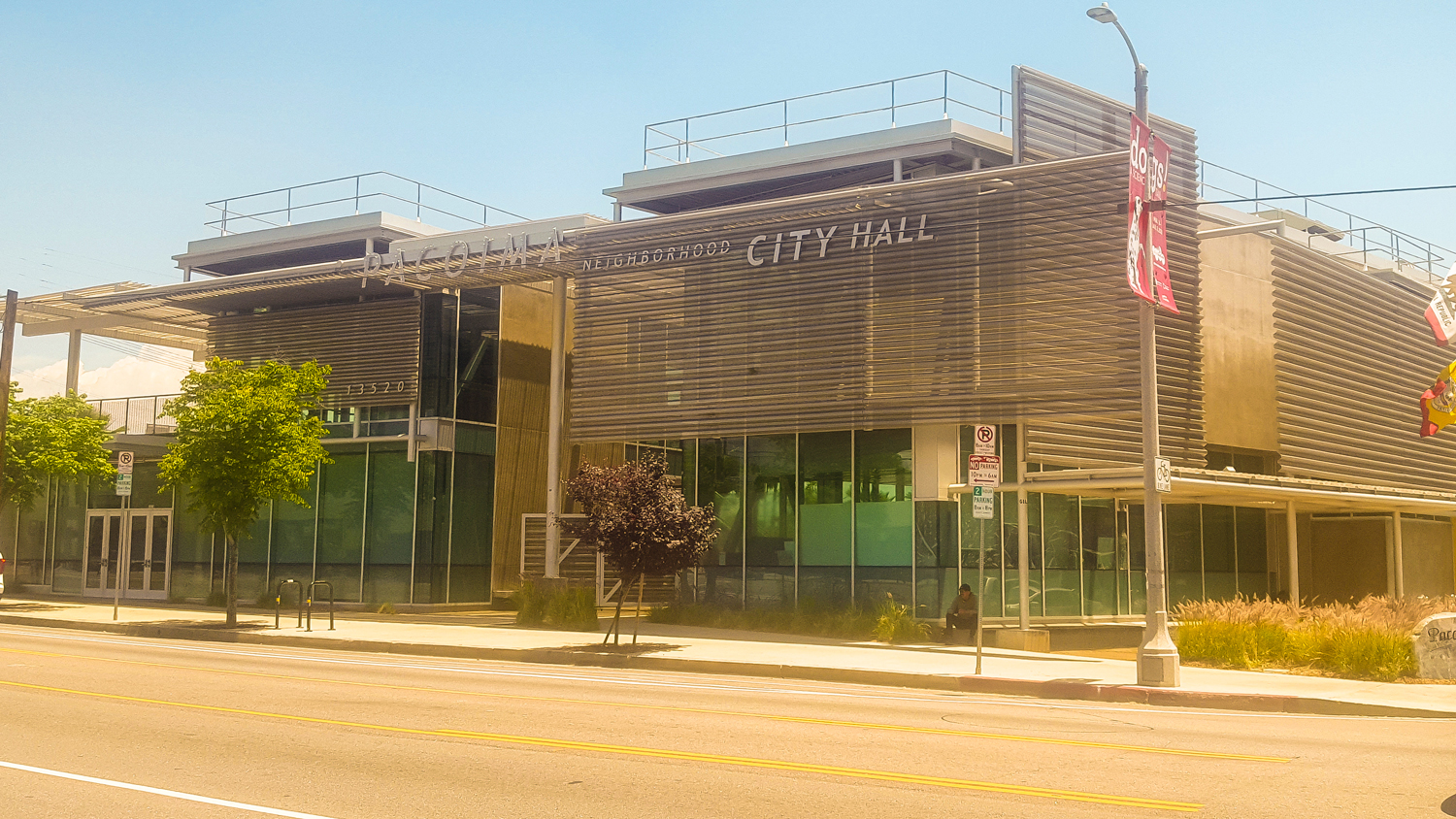By Les Dunseith
For Silvia González studying for a doctorate in urban planning at UCLA is about more than learning how cities and communities can be better designed. It’s about promoting economic and environmental justice and housing equity, causes she is personally connected to.
González and her family grew up 20 miles north of UCLA in the working-class communities of Pacoima and San Fernando, spending several years in a garage converted to a living space without permits on a property owned by her aunt. Her family eventually moved out, and “later it was torn down, after inspectors found out.”
That result is “exactly what we don’t want to happen” in Pacoima, González said. “If it’s affordable housing, then how do we keep it?”
Fast forward to the past academic year, when González served as a graduate instructor for a comprehensive research project in which 16 urban planning master’s degree candidates in the UCLA Luskin School of Public Affairs spent nearly six months studying ways to make sure a pending major redevelopment effort in the community does not lead to displacement of the people already living there.
The research and final report were produced for a nonprofit organization known as Pacoima Beautiful, other community partners and government agencies. The research effort was a byproduct of $23 million received by Pacoima as part of a statewide grant process that is providing funding for development and infrastructure projects to achieve significant environmental, health and economic benefits in the state’s most disadvantaged communities.
“I think our project creates a really amazing starting point for further research, and it provided concrete recommendations for the organizations to think about,” said Jessica Bremner, a doctoral student in urban planning who also served as a teaching assistant for the class that conducted the research. Professor Vinit Mukhija, chair of UCLA Luskin Urban Planning, was the course instructor.
Pacoima is one of many places in Southern California in which many lower-income residents scrape by amid a housing affordability crisis by taking up residence in converted garages and other outbuildings, or in portions of homes that have been added or converted as places to be rented. One subgroup of the UCLA Luskin class utilized aerial images and walked the streets of Pacoima to catalog the presence of these types of living spaces, which are known as accessory dwelling units, or ADUs.
In the geographic area they studied, the team found that almost half of all properties included a secondary dwelling — often without the permits and inspector approvals to be considered legal. According to the project report, about three-quarters of the tenants pay less than $1,000 per month in rent. Almost half live in an ADU on a property in which the main unit is occupied by a relative.
On May 28, the team went to Pacoima City Hall to present its findings, which also detail the personal impact of housing instability on Pacoima’s residents. In their summary report, the researchers wrote that their research questions had presumed that the condition of individual housing units would be the defining characteristic of the tenant experience.
“We were wrong,” they wrote. “Tenants face a variety of good and bad conditions, but the most important factor influencing their quality of life was the relationship between the landlord and tenant.”
González said that Pacoima Beautiful and its partner organizations are committed to finding solutions to address possible gentrification and housing displacement before it happens in Pacoima. As grant awardees, the organizations are required to prepare and implement a displacement avoidance plan. González also works for UCLA’s Center for Neighborhood Knowledge, which had assisted Pacoima with the grant application and is now taking the lead in developing that plan. Pacoima Beautiful is responsible for managing it.
“I really love the way that it came about,” González said. “The decision to address displacement before it happens came from the community. The community is interested in taking advantage of the housing options that are already there and building on that.”
The research effort included one-on-one interviews, focus groups and site observations, with volunteers from the new UCLA Luskin undergraduate public affairs program helping with some tasks.
Some of the findings were surprising.
“I think everyone has these assumptions around accessory dwelling units … that they are only for the short term or for temporary housing, which we found actually wasn’t true,” Bremner said. The majority of residents living in ADUs in Pacoima do so for many years, the study found.
When they looked at how space is used, Bremner said researchers expected that the shared communal spaces common to ADUs would promote bonding among residents, but that was not the case. For example, a youth from a family of five reported sleeping on a sofa in the living room of one dwelling and rarely interacting with the 10 people in other families living in two other ADUs on the property.
This interviewee was among a number of high school youths who spoke to the researchers, and those survey participants provided detailed descriptions of their living arrangements.
“I think the stories of the youth were very impactful,” said González, who noted that most cope with the burden of schoolwork and the pressures of teenage life while living in stressful, overcrowded conditions.
The urban planning team also analyzed the willingness of property owners to sell or lease all, or part, of their land for the purpose of creating community land trusts, which acquire and hold land in the interest of promoting affordable housing by removing properties from the speculative real estate market.
As urban planners concerned about housing equity, the UCLA team tended to view the idea of community land trusts as a good approach. But, González said, the homeowners were “apprehensive about being a part of a community land trust in the way that we were pitching it, which was a community land trust that owns accessory dwelling units.”
Property owners were not interested in the idea if it meant the homeowner would be responsible for dealing with the tenants.
“But if there’s an organization that will deal with the tenants— that will be responsible for them — then [property owners] wanted to participate,” González said.
The comprehensive project was just one step in a long process for Pacoima, but both Bremner and González believe the results will prove valuable.
“From Pacoima Beautiful’s perspective, I think it changed their approach to organizing,” González said. “They are an environmental justice organization. And now seeing how important that housing is to their community, I think it’s going to change the way that they approach the project. And it is going to change the way they do future projects.”
